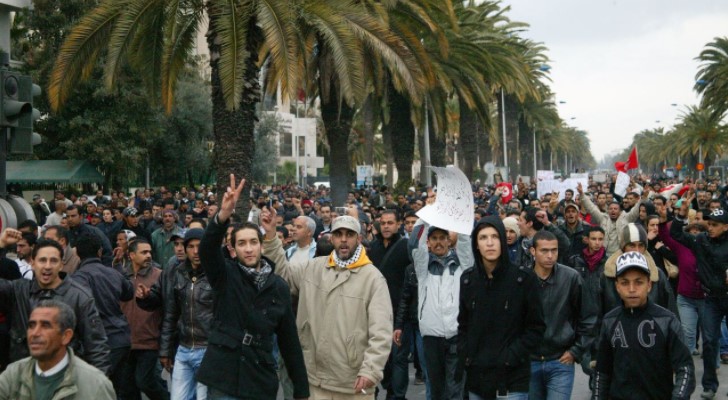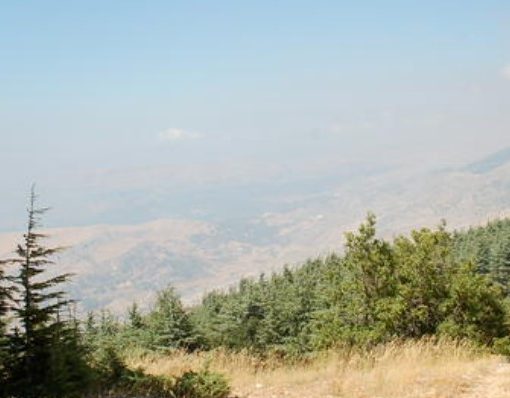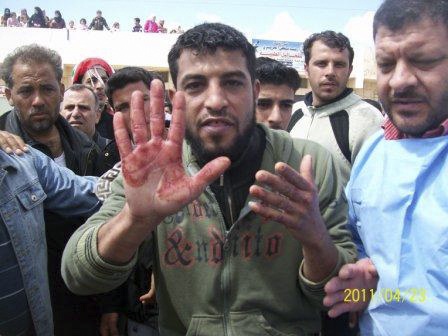Beirut Media Center has built a solid business providing news transmission services for western media.
The climate is not the only thing linking London to Beirut these days. On an unusually hot and humid August afternoon in Stockwell, broadcast service provider Ken Suckling explains the surprising portability of a large satellite dish that sits on top of a van, more technically known as a flyaway terminal. Operations manager Kate Ivens is on hand to translate Suckling’s expertise into layman’s terms, while engineer Adam Simmons has no such qualms and launches into an intricate explanation of the input, conversion and transmission process.
The Beirut Media Center (BMC) was founded by Suckling and international television journalist Brent Sadler in 2001. While based in Beirut, it is supported and partnered by Suckling’s London-based Satellite News Gathering (SNG) Broadcast Services, which provides technical support from its office and warehouse in Stockwell. The BMC provides satellite transmission and production equipment for independent and national networks and broadcasters all over Europe, the Middle East and North America, including the BBC, CNN, Sky, Deutsche Wella, Al Jazeera and Al Arabia. It has a fixed link studio in downtown Beirut. Located behind the ESCWA building, the studio offers a permanent live background of the Prime Minister’s palace, downtown Beirut and the sea. It also provides portable flyaway satellite uplink facilities, so that breaking news, and cultural, business and sporting events in the Middle East can be covered and transmitted all over the world.
Turning Beirut into a media hub
The establishment of the BMC heralds a new era in which Beirut is becoming a center for journalism and broadcasting in the Middle East. It was established in January 2001, after SNG was subcontracted by CNN to help cover the Israeli withdrawal from southern Lebanon in 2000. At the same time, then prime minister, the late Rafik Hariri, liberalized the licensing laws for broadcasting and satellite transmission in Lebanon. Sadler, reporting for CNN, got together with Suckling and formed the company. “We saw an opportunity and went with it,” said Suckling. “There were no obstacles after the initial transition period during which the liberalization laws came into effect.” The company was quickly up and running, making use of its partner SNG’s contacts, technical support and predominantly European client list.
The partnership between Sadler and Suckling works effectively. They have known each other since 1992, when Suckling was providing satellite services for CNN in Somalia. Sadler is the BMC’s chairman and a 50% shareholder. As a well known television reporter, he is very much the company’s face. Suckling, on the other hand, is the technology and business expert who has been in the news gathering business since the 1980s.
Before 2001, Cairo was, and remains, a principal regional center for broadcasting, where several international television networks and broadcasters (including CNN) base their regional headquarters. During the 1990s, Egypt had an advantage over Lebanon because there were more flights to and from the country granting easier access to the rest of the Middle East. In Lebanon there remain difficulties for broadcasters and journalists wanting to travel to Israel and the Palestinian territories. But Hariri’s liberalization of transmission regulations made an enormous difference. What also tipped the balance in Beirut’s favour was Hariri’s launching of an “open skies” policy, which ended restrictions on aircraft capacity and limitations on the frequency of flights to and from Beirut, thus permitting more frequent and easier transportation of satellite broadcasting equipment. Finally, Cairo’s licensing laws can be restrictive. It can be difficult to get transmission licences from the government, and the marketplace is inevitably controlled by this to some degree. So once Hariri’s reforms had been implemented, some movement towards Beirut was inevitable. The BMC was the first transmission services company to open up in Beirut, and was rapidly followed by Sawatel and the Beirut Broadcast Service Centre (BBSC). Television stations LBC, Future TV and Orbit also offer transmission facilities. While it is not the largest, the BMC remains one of the busiest. Its success depends on many of the same qualities that allowed SNG, out of which it was formed, to thrive. These qualities include the company’s small size, which permits immediate reaction to world events, and its highly skilled engineers for the operation and maintenance of expensive and easily damaged equipment. “It is an expensive service to provide, with high entry and maintenance costs,” said Suckling. Well-trained engineers are paramount, and the BMC can draw upon SNG’s technical back-up facilities.
While it is difficult to predict the company’s annual turnover, Suckling estimated it at US$300,000. “Because most of our revenue comes from Western clients it depends on how much interest there is in the Middle East,” he said. “We can double our turnover with a war in Afghanistan or Iraq. But we’re the first people to suffer if Western economies become tight, or if advertising revenues, which pay for air time, are reduced.” It is not that there would be less news, but the ways in which news is transmitted would suffer – there would be fewer live crosses, for instance, and more taped news. The BMC’s reputation has certainly been consolidated this year. Since Hariri’s assassination in February, the demonstrations, elections and bombings have reawakened international interest in Lebanon. For Suckling, these events have proved that the decision to create the BMC was correct: “Beirut is a sensible place to be based if you can’t function out of Cairo.” He also believes that providing transmission services permits Lebanon to have a more prominent voice on the world stage. “There’s now a studio for people to go to in Beirut and it’s easy for international broadcasters to contact and hear the opinions of local politicians, experts and analysts.”
What lies ahead
As for the future of the company, Suckling and Sadler are planning to expand the BMC’s editorial department, which was established in 2003 and has grown rapidly. The BMC’s permanent journalists, Anthony Mills and Christina Foerch, complement the company’s transmission services, and use the downtown studio and production facilities to transmit their stories. This journalism department is building a solid reputation for providing a European view on regional events. Mills and Foerch are fluent in English, French and German and present stories to Deutsche Wella, ZDV, Arte, Sky, CNN and Al-Arabia, among other stations. “Our experiment with the journalists has been a success and we are looking to expand the journalistic side regionally,” Suckling said. He believes that Beirut will continue to operate as a centre for news gathering in the region. However, he wishes the company to remain small which, up to now, has proved to be a winning formula. “We don’t want to apply ourselves to a vast number of clients,” he said. “We have a core of quality clients and we provide a good service to them.”
Read the full article here



